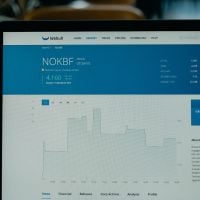Deadline: 5-Jan-23
The European Commission (EC) issued a call for proposals for EU action grants in the field of Agriculture and Rural Development policy under the Information Measures Relating to the Common Agricultural Policy Programme (IMCAP).
The Common Agricultural Policy (CAP) is one of the EU’s most important policies. It is a partnership between agriculture and society and between Europe and its farmers. It is a common policy for all the countries and citizens of the EU and benefits them in various ways. It supports farmers and improves agricultural production, maintains rural areas and landscapes, keeps the rural economy alive and helps tackle climate change and the sustainable management of natural resources.
Objectives
- The general objective of the call is to inform citizens, farmers and non-farmers alike and to promote information about the Common Agricultural Policy (CAP), including the national CAP Strategic Plans (i.e. the policy and its benefits for the citizens of the EU).
- The proposals submitted should provide coherent, objective and comprehensive information measures, reaching a significant number of citizens in the EU, providing them with a factual, accurate and well documented overall picture of the benefits of the CAP for citizens, EU agriculture and the environment.
- The key issues and messaging should be fully consistent with Article 46 of Regulation (EU) 2021/2116.
- The focus of the large-scale information and communication measures should be on addressing misperceptions and disinformation about European agriculture and the CAP, using facts and backed up with data with a view to raising public awareness on the relevance of EU support to agriculture and rural development through the CAP.
- The projects must clearly explain how they will contribute to raising public awareness and improving the perception of the CAP among citizens.
Themes and Priorities
- The CAP plays a key role in supporting the EU’s farming sector and rural areas. It aims to ensure a sustainable agriculture with respect to economic, social and environmental aspects. In the framework of the European Green Deal, the Commission adopted a Farm to fork strategy, a Biodiversity strategy and the Organic action plan, all of which address issues relevant to agriculture and rural areas.
- The Farm to fork strategy will enable the transition to a more sustainable EU food system that safeguards food security, reduces the environmental and climate footprint of the EU food system and strengthens its resilience, protecting citizens’ health and ensuring the livelihoods of economic operators. The Biodiversity strategy as it relates to farming promotes the uptake of agroecological practices and seeks to increase agricultural land dedicated to organic farming. By producing high quality food with low environmental impact, organic farming will play an essential role in developing a sustainable food system for the EU.
- The Action Plan for the development of organic production aims to boost the production and consumption of organic products, to reach 25% of agricultural land under organic farming by 2030, as well as to increase organic aquaculture significantly.
- The CAP is an important instrument in managing the transition to sustainable food production systems and in strengthening the efforts of European farmers to contribute to the climate objectives of the EU and to protect the environment, as well as reaching the targets set out in the European Green Deal.
Funding Information
- The available call budget is EUR 4 000 000.
- Project budgets (maximum grant amount) are expected to range between EUR 125 000 and EUR 500 000 per project.
- Projects should be a maximum of 12 months.
Eligibility Criteria
- In order to be eligible, the applicants (beneficiaries and affiliated entities) must:
- be legal entities (public or private bodies)
- be established in one of the eligible countries, i.e.
- EU Member States
- Specific Cases
- Natural persons — Natural persons are NOT eligible (with the exception of selfemployed persons, i.e. sole traders, where the company does not have legal personality separate from that of the natural person).
- International organisations — International organisations are eligible. The rules on eligible countries do not apply to them.
- Entities without legal personality — Entities which do not have legal personality under their national law may exceptionally participate, provided that their representatives have the capacity to undertake legal obligations on their behalf, and offer guarantees for the protection of the EU financial interests equivalent to that offered by legal persons
For more information, visit https://bit.ly/3hsMyWG









































